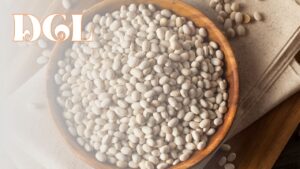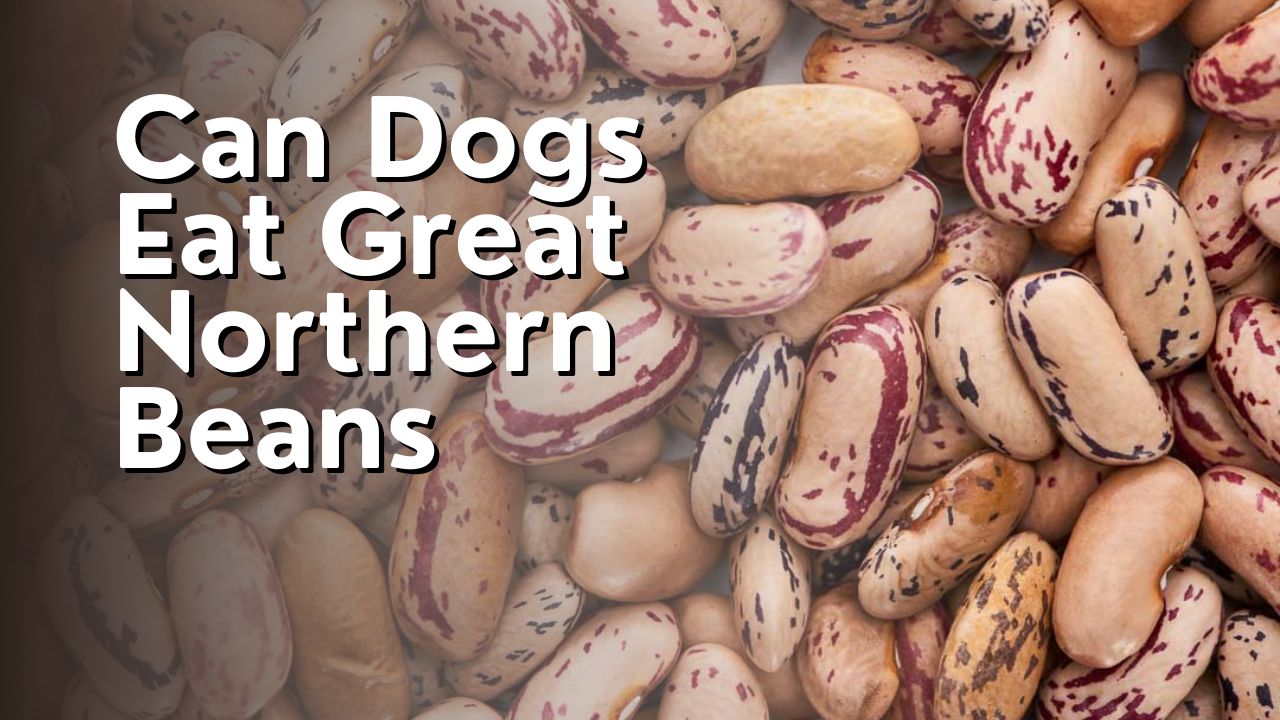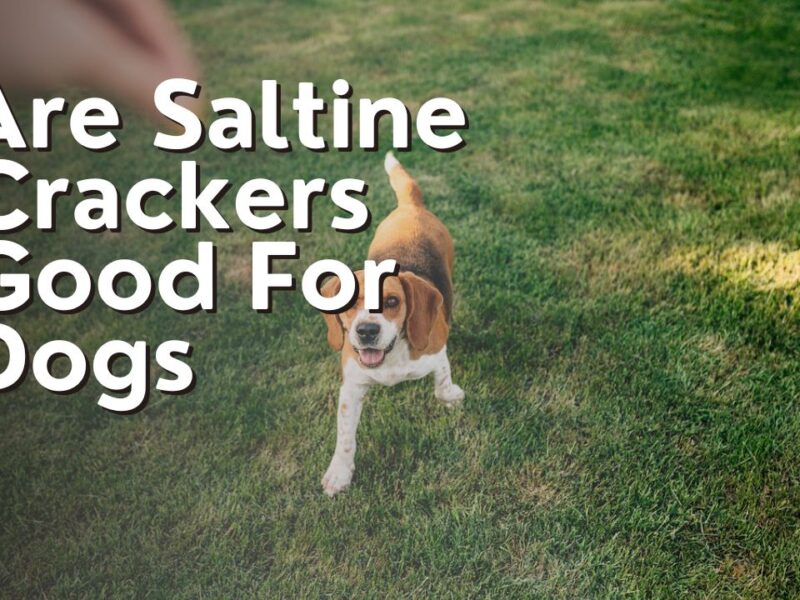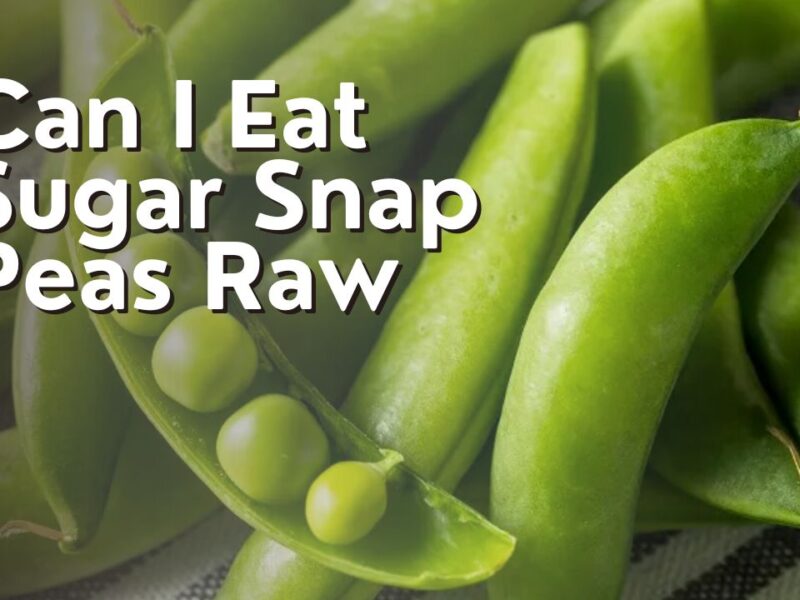Have you ever wondered if dogs can eat great northern beans? Well, I’m here to give you all the information you need.
As a dog lover and pet enthusiast, I understand the importance of providing our furry friends with a balanced and nutritious diet. Great northern beans are packed with essential nutrients that can benefit our pups in many ways. However, it’s crucial to be aware of the potential risks and how to safely introduce these beans into their diet.
In this article, we will explore the nutritional benefits of great northern beans for dogs, the potential risks involved, and provide tips on how to introduce them to your dog’s diet. We will also discuss some healthy alternatives to consider. Remember, it’s always a good idea to consult your veterinarian before making any changes to your dog’s diet.
Let’s dive in and discover if great northern beans are a safe and healthy option for our canine companions!
- Nutritional Benefits of Great Northern Beans for Dogs
- Potential Risks of Feeding Great Northern Beans to Dogs
- How to Safely Introduce Great Northern Beans to Your Dog's Diet
- Other Healthy Alternatives to Great Northern Beans for Dogs
- Consult Your Veterinarian Before Adding Great Northern Beans to Your Dog's Diet
- Frequently Asked Questions
- Conclusion
Nutritional Benefits of Great Northern Beans for Dogs
You’ll be thrilled to know that great northern beans are not only safe for your furry companion, but they also provide a plethora of nutritional benefits that can contribute to their overall well-being. These small, creamy white beans are packed with fiber, protein, and essential vitamins and minerals that can support your dog’s health.
One of the main benefits of great northern beans is their high fiber content. Fiber is important for dogs as it helps regulate their digestive system and prevents constipation. It can also aid in weight management by promoting a feeling of fullness, which can reduce overeating and unnecessary weight gain.
Additionally, great northern beans are an excellent source of plant-based protein. Protein is essential for dogs as it helps build and repair tissues, supports a healthy immune system, and provides energy. Including great northern beans in your dog’s diet can be particularly beneficial for dogs with allergies or sensitivities to animal-based proteins.
Furthermore, these beans contain a range of vitamins and minerals, including potassium, magnesium, and folate. These nutrients are important for maintaining healthy bones, muscles, and blood pressure levels in dogs.
In conclusion, great northern beans are a safe and nutritious addition to your dog’s diet. They offer a variety of health benefits, including improved digestion, increased protein intake, and essential vitamins and minerals. Just be sure to introduce them gradually and in moderation to avoid any digestive upset.

Potential Risks of Feeding Great Northern Beans to Dogs
Feeding great northern beans to dogs can pose potential risks to their health. While these legumes have nutritional benefits, it is important to consider the following concerns.
One main concern is the high fiber content in great northern beans. While fiber is important for a healthy digestive system, excessive amounts can lead to gastrointestinal issues such as bloating, gas, and diarrhea in dogs. This is especially true for dogs with sensitive stomachs or digestive problems.
Another risk is the presence of lectins in great northern beans. These naturally occurring proteins can be toxic to dogs if consumed in large quantities. They can interfere with nutrient absorption and potentially damage the lining of the digestive tract.
Additionally, great northern beans contain oligosaccharides, which are complex carbohydrates that can be difficult for dogs to digest. This can cause discomfort and flatulence.
It is crucial to remember that every dog is different, and some may handle great northern beans better than others. However, it is generally recommended to consult with a veterinarian before introducing any new food, including great northern beans, into your dog’s diet. Your vet can provide personalized advice based on your dog’s specific needs and health conditions.
How to Safely Introduce Great Northern Beans to Your Dog’s Diet
Introducing these nutritious legumes to your furry friend’s meals can be a safe and exciting adventure! However, it’s important to take some precautions to ensure that your dog can enjoy Great Northern beans without any adverse effects.
Firstly, it’s crucial to start slow when introducing any new food to your dog’s diet. Begin by offering a small amount of cooked Great Northern beans mixed with their regular food. Monitor their reaction closely for any signs of digestive upset or allergies. If your dog shows any negative symptoms, such as vomiting or diarrhea, discontinue feeding them the beans immediately and consult your veterinarian.
Additionally, it’s essential to properly prepare the beans before feeding them to your dog. Soaking and cooking the beans thoroughly helps to break down the complex sugars and fibers, making them easier for your dog to digest. Avoid adding any seasonings or spices, as these can be harmful to dogs.
Furthermore, portion control is vital when it comes to feeding Great Northern beans to your dog. While they are packed with nutrients, they should only make up a small portion of their overall diet. A good rule of thumb is to offer beans as an occasional treat or topping rather than a staple food.
By following these guidelines, you can safely incorporate Great Northern beans into your dog’s diet, providing them with a healthy and tasty addition to their meals.

Other Healthy Alternatives to Great Northern Beans for Dogs
If your furry friend is looking for a new addition to their meals, consider exploring other nutritious legumes as healthy alternatives. While great northern beans can be a safe and nutritious option for dogs, it’s always good to have some variety in their diet. Here are some other legumes that you can introduce to your dog’s meals:
| Legume | Benefits | Precautions |
|---|---|---|
| Lentils | High in fiber and protein, easy to digest | Cook them thoroughly to prevent digestive issues |
| Chickpeas | Good source of protein and vitamins | Avoid giving them raw, as it can cause bloating |
| Green peas | High in vitamins and minerals, low in calories | Watch out for excessive gas or stomach upset |
| Black beans | Rich in antioxidants and fiber | Soak and cook them well to eliminate toxins |
| Kidney beans | Packed with fiber and essential nutrients | Cook them thoroughly to remove toxins |
Remember to introduce these legumes gradually and in moderation, as sudden changes in your dog’s diet can cause digestive upset. It’s always a good idea to consult with your veterinarian before making any significant changes to your dog’s diet. Keeping your furry friend healthy and happy is all about providing a balanced and nutritious diet.
Consult Your Veterinarian Before Adding Great Northern Beans to Your Dog’s Diet
Before adding Great Northern Beans to your dog’s diet, consult your veterinarian. Every dog is different and may have specific dietary needs or restrictions. Your veterinarian can assess your dog’s health and determine if Great Northern Beans are suitable.
Consult your veterinarian if your dog has pre-existing health conditions or is on medication. Certain conditions may require a specialized diet that excludes beans. Your veterinarian can provide specific recommendations based on your dog’s needs.
Your veterinarian can also help determine the portion size and frequency of feeding Great Northern Beans. Introduce new foods gradually to avoid digestive upset. Your veterinarian can guide you on incorporating Great Northern Beans into your dog’s meals.
Always prioritize your dog’s health and well-being. Consult your veterinarian to make informed decisions about your dog’s diet and ensure they receive the best nutrition for their needs.
Frequently Asked Questions
What are the common symptoms of an allergic reaction in dogs to great northern beans?
Common symptoms of an allergic reaction in dogs to great northern beans include itching, redness, swelling, hives, vomiting, diarrhea, and difficulty breathing. It is important to avoid feeding them this food if they show any signs of an allergic reaction.
Can dogs safely consume great northern beans if they have a history of digestive issues?
If a dog has a history of digestive issues, it may not be safe for them to consume great northern beans. It’s best to consult with a veterinarian to determine the best diet for their specific needs.
Are there any specific breeds that should avoid consuming great northern beans?
No specific breeds should avoid consuming great northern beans. However, it’s always important to consider an individual dog’s digestive issues and consult with a veterinarian before introducing any new food into their diet.
Can great northern beans cause urinary problems in dogs?
Great northern beans can potentially cause urinary problems in dogs due to their high purine content. It’s important to consult with a veterinarian before feeding them to your dog to ensure their safety.
How frequently should great northern beans be included in a dog’s diet for optimal health benefits?
Including great northern beans in a dog’s diet for optimal health benefits depends on their individual needs and dietary restrictions. It’s best to consult with a veterinarian to determine the appropriate frequency and portion size.
Conclusion
In conclusion, I believe that great northern beans can be a nutritious addition to a dog’s diet. However, it is important to introduce them slowly and in moderation.
Great northern beans offer numerous health benefits, such as being high in fiber and protein. These nutrients can support a dog’s digestive health and provide them with energy.
However, there are potential risks associated with feeding great northern beans to dogs. One common issue is gas, which can cause discomfort and bloating. Digestive issues, such as diarrhea or constipation, may also occur if the beans are not properly cooked or if the dog consumes them in excessive amounts.
To ensure your dog’s overall health and well-being, it is always best to consult with your veterinarian before making any significant changes to their diet. They can provide personalized advice and guidance based on your dog’s specific needs and dietary requirements.


